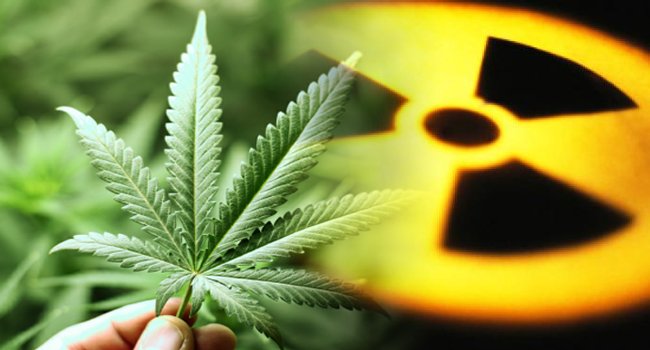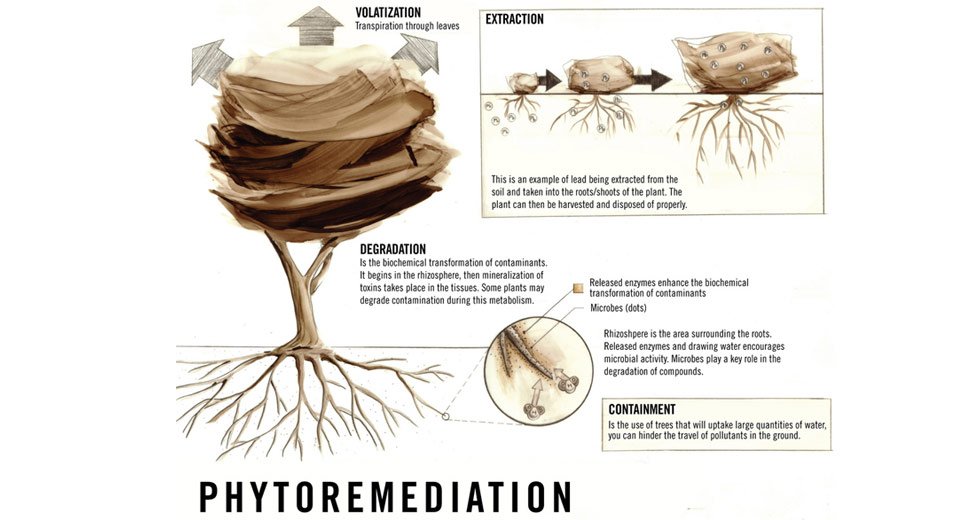
Hemp is an amazing plant because there are literally said to be thousands of different uses for it. Some estimates say that there might be as many as 50,000 different ways that we can use hemp to benefit our communities, the economy, and the world around us. Some of the more popularly mentioned uses are medicines, plastics, fuel, livestock feed, and paper products.
One of the even more impressive qualities of hemp is that it can also help to assist with radiation clean-up.
Hemp has proven to be a beneficial phyto-remediative plant and scientists have found that it can help to clean-up polluted areas that have been effected by radiation. Scientists even used hemp to clean-up areas around the Chernobyl disaster and they noted that after the clean-up that the hemp could be used to produce bio-fuel which would give them a second use out of it. There are a number of studies that already indicate that hemp might be an extremely beneficial plant when it comes to absorbing toxins like heavy metals and more.

It is said that the hemp plant is able to leach contaminants from the soil and that is how it's able to clean-up the area. The Japanese were even considering using it with the Fukushima disaster but criminalization over the plant there prevented them from seeing if it could help. The Fukushima disaster is one that authorities there have been struggling with for years to try and clean-up and get under control, and who knows how much better off the situation might be if they were allowed the freedom to try cleaning things up by growing some hemp.

The hemp is able to use the process of phytoremediation in order to clean the infected area. Phytoremediation is the process of using living plants in order to remove contaminants in the soil or groundwater etc. This cleanup process is a very low-cost and solar energy driven technique. Not only is it cost-effective but it's also said to be the least harmful method for cleanup as it preserves the environment in a more natural state and uses living organisms in order to address the problem.
Other plants that are used for this same purpose of phytoromediation are plants like Indian mustard, willow, sunflower, Indian grass, and others. This is just one more way that hemp, if legalized/decriminalized, could help to benefit us as well as the environment and more.
To this day, Fukushima is still having radiation problems and the issue hasn't been cleaned-up or sorted out yet. With radiation levels said to be soaring there in recent weeks. It's about 6 years since the event occurred and they still haven't stabilized the area yet.
Pics:
Shutterstock
Natural Blaze
Sources:
http://www.mintpressnews.com/how-hemp-can-can-clean-up-radiation-from-fukushima-nuclear-disaster/210098/
https://sensiseeds.com/en/blog/hemp-decontamination-radioactive-soil/
http://web.archive.org/web/20090718104711/http://pr.cannazine.co.uk/200907101115/green/eco-news/hemp-cleans-up-in-chernobyl.html
http://nationalhempassociation.org/how-hemp-can-clean-up-radiation-from-fukushima-nuclear-disaster/
http://herb.co/2016/01/12/hemp-vs-nuclear-waste/
https://en.wikipedia.org/wiki/Phytoremediation
http://www.sciencealert.com/radiation-levels-in-the-fukushima-reactor-have-started-unexpectedly-climbing
https://www.cnet.com/news/deathly-high-radiation-levels-at-fukushima-nuclear-reactor-is-bad-bad-news/
